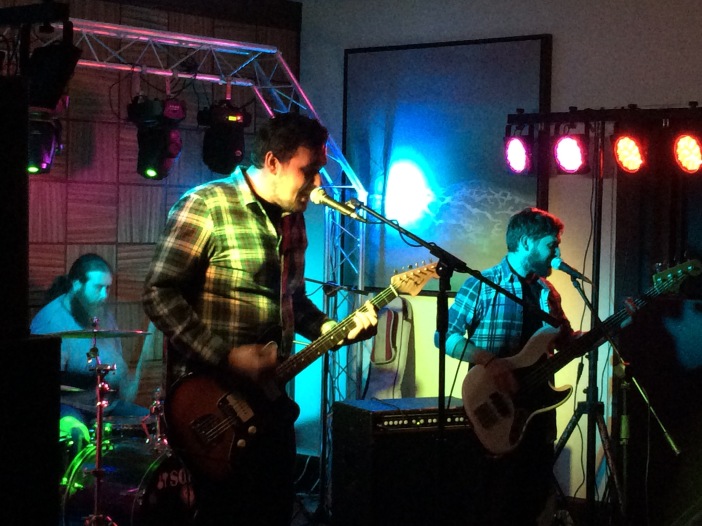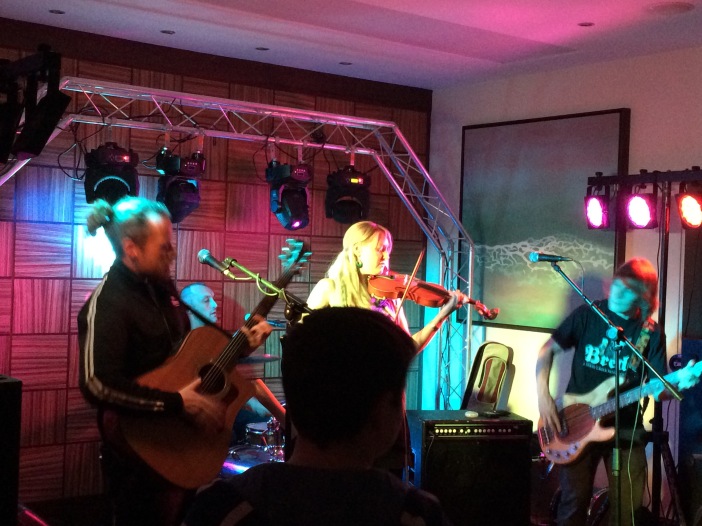There were two different things I could write here, and both of them deserve their own blog post. The first is the new Fifty Fathoms/BBC drama The A Word, which hopes to be inspirational, educational and emotive. The second is the use of person-first language, and why I, as an autistic person, disagree with it.
However, while I would love to talk about these things separately (and possibly will in the future, once all six episodes of The A Word have aired and I have collected enough coherent information about person-first language), there was a slight overlap of these topics following the first episode.
What I can say about The A Word so far is that I really enjoyed the episode, and that I really related to 5-year-old Joe and his love of music. As someone who sings for fun, comfort and everything in between, learns lyrics and collects trivia about my favourite musicians like some people collect trading cards, I genuinely feel for that kid. As a perspective on autism, I feel like it’s a pretty fair representation of part of the spectrum. Of course, there is never a way of representing all of the spectrum in one character, but the portrayal of Joe in the first episode managed to avoid many of the exaggerated stereotypes and faults that plague the majority of autistic characters in the media.
Now, I’m going to switch topic for a moment. I promise it’ll link in, but this is an important perspective for anyone who wants or claims to be considerate of disability rights. Almost all of the disabled people (autistic or otherwise) I’ve ever spoken to, online or in real life, condemn the use of person-first language. The topic of person-first versus identity-first language is something of a buzz topic among such communities, which can be easily accessed on social media. These are key phrases in disabled communities and amongst disability rights activists, but they’re jargon in comparison to other disability-related terms floating around the mainstream, so I’ll give a short glossary of what they mean.
Person-first language, also called ‘people-first language’, is the act of referring to disabled people as ‘people with disabilities’, in this specific case ‘people with autism’. The aim of using person-first language is to reduce stigma and dehumanisation of disabled people, though it has faced a lot of criticism since it became the standard.
Master status is a sociological term which, while I haven’t mentioned it so far, is an important aspect of disability advocacy and rights. It is defined as the primary characteristic (therefore visual or otherwise obvious) on which someone is judged, and can refer to race, gender, disability, and more. A master status is dehumanising because it ignores people’s personalities and reduces their identity down to a single, often stereotyped or stigmatised, characteristic.
Identity-first language is the opposite of person-first language, and refers to the use of the phrase ‘disabled people’ and any derivatives. Identity-first language can be controversial because in the past some of these words have been used as slurs and insults, though the majority of disabled people I’ve ever seen discussing matter prefer this phrasing to the awkward alternative.
Much of the criticism of person-first language comes from the fact that isn’t achieving what it wanted to. Many people point out that the phrasing is similar to how people with illnesses are referred to, implying that disabilities are always the same as illnesses, problems that need to be fixed. The impact of this is that it ignores the significant impact that being disabled can have on a person’s identity and personality, effectively stripping them of their identity.
A second criticism is that person-first language suggests that it is ensuring that people ‘see the individual before the disability’. This, in turn, implies that people cannot be seen as complete humans if others think of them as disabled, which is a harmful rhetoric in many ways. Person-first language contradicts its original purpose by dehumanising people in this manner, which encourages others to think the same way if it used by authority figures such as diagnosticians and psychiatrists.
Lastly, person-first language is intent on separating the person from the disability, which many people would protest against. Disability activists and advocates would argue that their disability forms a major part of their identity and has impacted the way they think and perceive the world. This is particularly prevalent amongst developmentally disabled people, as their disability very literally affects the way they view the world. That is one of the most common reasons why people claim to dislike the use of such phrasing, because while attempting to reduce stigma it only ends up avoiding the disability by not discussing it.
As much as I liked the first episode of The A Word, there was one moment that felt like a slap in the face. During the somewhat rushed diagnostic process, Joe’s mother asked if her son was autistic, with the psychiatrist responding vehemently that she “would never describe any child as [autistic]”. While I saw a few people defending and praising this line on Twitter, the manner in which it was delivered seemed aggressively negative.
The cold tone used by the character seemed hostile to the point of combative, and it felt as if it was invading the safe-spaces autistic people have made for the themselves by so openly attacking their viewpoint. With reviews floating around which praise the show for its representation, I cannot get it out of my head that this woman thought so ill of the autistic community and their views. I also cannot put this down to under-researching, as it appears from the rest of the narrative that the writers were clearly thorough in their research and understanding of autism- I therefore assume they have the same amount research about the autistic community and the views of autistic people themselves.
However, there were a few people online who shared my view in context of the programme, and many more who share my view in general. In the worst case scenario, the use of person-first language implies an allegiance to the harmful organisation Autism Speaks (which again, I may talk more on in the future) and at best is merely a set-up so that they can discuss the issue in a future episode. Given that the organisation who made the show liked my tweet on the topic, I’m hopeful that it’s going in the better direction.
I’d still recommend watching the show, as long as you keep this in mind. Aside from that one issue, I feel like the show is going to be a well-written discussion of autism and a good source of awareness and acceptance throughout its run, and I hope it lives up to those good reviews and expectations.













